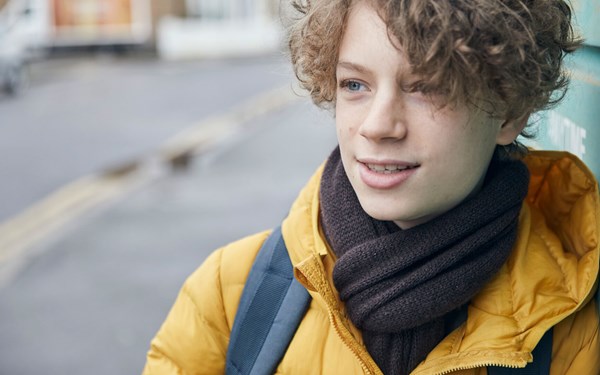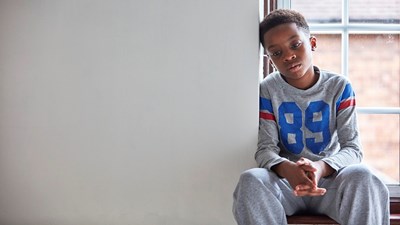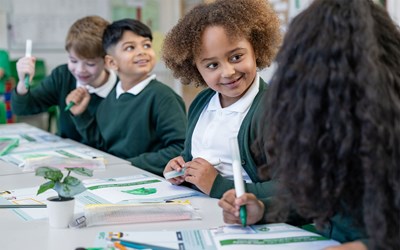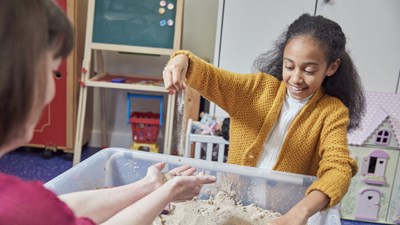What the law says about children working
There are laws in place to make sure young people get the education they need before they start working. They still need time to focus on school and to be able to finish their studies before working full-time.
Getting a job can be an exciting way to feel more independent, but it's a big step to take and it's important they don’t feel rushed into it. Childline has some advice for young people about finding jobs and working.
Legal age limits
To make sure children and young people are getting the education they need there are legal age limits about what type of work they can do.
- Only children over 13 years old can work part-time – but there are different rules for child performers. Read more below.
- Young people can only start working full-time once they’re legally old enough to leave school.
- Young people can work as apprentices from the age of 16. Apprentices are paid a salary for their work, and pay tax and national insurance. Find out more from Gov.uk (England), NI Direct, Skills Development Scotland or Gov.wales
Children under the school leaving age should only work:
- the correct number of hours for their age
- at certain times – not before 7 am or after 7 pm
- if they have regular breaks – 1 hour for every 4 hours worked
- in places that are safe for children. For example, they can't work in
- factories, industrial sites, pubs or betting shops
- if it doesn't affect their health, wellbeing and education.
Local authorities work to protect children and young people from being employed somewhere that isn’t safe. Local bylaws may also restrict the kind of work children can do.
Working hours
There are laws about when children and young people can work, and for how long, to make sure they aren’t overworking and have time to do their school work.
13-14 year olds
During term time, children aged 13-14 should only work a maximum of 12 hours a week, up to 2 hours a day on school days and Sundays, and up to 5 hours on Saturday.
During the school holidays, they can work a maximum of 25 hours a week, up to 5 hours a day on weekdays or Saturday, and 2 hours on Sunday.
15-16 year olds:
During term time, children aged 15-16 should only work a maximum of 12 hours a week, up to 2 hours a day on school days and Sundays, and up to 8 hours on Saturday.
During the school holidays, they can work a maximum of 35 hours a week, up to 8 hours a day on weekdays or Saturday, and 2 hours on Sunday.
16-18 year olds
If a young person is old enough to leave school, they can work up to 40 hours a week. When they reach 18 then adult employment rights and rules will apply.
Wages and pay
There are different rules about pay for children and young people, until they reach 18 and have the same employment rights as adults.
School-aged children aren’t entitled to the National Minimum Wage and don’t pay National Insurance.
Laws to protect child performers
It is legal in very specific circumstances for children younger than 13 to work – if they’re performing in a play, film, concert, sporting event or modelling assignment.
If the child or young person performing is under the school leaving age, they’ll need a performance licence if they are taking part in:
- films, plays, concerts or other public performances that the audience pays to see, or that take place on licensed premises; and/or
- any sporting events or modelling assignments where they are paid.
The person in charge of the event should contact the child’s local council to check if a performance licence is necessary, and should make the application.
Performing is an exciting experience – and to make sure children and young people enjoy themselves and can focus on their work, they must be kept safe. They should always be supervised by their parent, school teacher, home tutor or an appropriate chaperone. NSPCC Learning has more information about keeping child performers safe and what they're entitled to.
Safe work environments for children and young people
Employers have a responsibility to keep all the children they work with safe. This means making sure they have somewhere safe to work, and that their job is suitable for their age and ability.
Employees working with someone underage don’t usually have to be vetted – except in specific circumstances.
If a child is below school leaving age, their employer must inform their parents or carers about any risks and any safety measures.
Getting work experience for children and young people
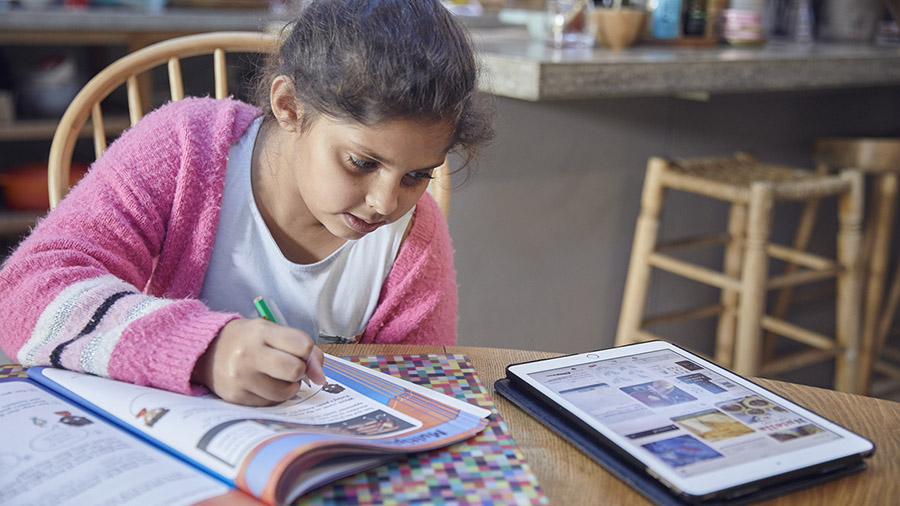 Work experience can help your child get to grips with the working world and see what a job is like first-hand. Many schools and colleges have work experience programmes, or young people can apply to work experience programmes themselves.
Work experience can help your child get to grips with the working world and see what a job is like first-hand. Many schools and colleges have work experience programmes, or young people can apply to work experience programmes themselves.
This is a great way to learn, but it’s important to make sure that the employer is prepared to take on young workers and that the workplace is safe. Employers must tell parents or carers if there are any risks and safety precautions to be aware of. It’s also important to let them know if your child has any medical or behavioural conditions that might be dangerous – like asthma. HSE (Health and Safety Executive) provides more information about health and safety at work experience.
Children and young people volunteering
Volunteering can be a great experience for children and young people as well as an opportunity to give back and make a difference to their community. It’s a way to learn new skills and to handle responsibility.
Organisations and groups working with young volunteers must keep them safe and should do all they can to make their experience positive.
However safe an organisation might seem, it's important to check they take the safety of your child seriously. Use our checklist below to help and find more detail on NSPCC Learning.
- Written standards of good practice – like a code of conduct or code of behaviour. This should set out boundaries for staff and volunteers, and should address things like discrimination and bullying.
- Clear procedures and processes for raising complaints and concerns.
- Effective consent and emergency processes – you should receive a consent form from the organisers, and share your contact details, and any relevant medical information about your child.
- There's a safe recruitment process for staff and volunteers, including vetting. This means they have appropriate references, criminal records checks and the right technical qualifications for the activity.
- Staff and volunteers are trained in safeguarding (child protection) – NSPCC Learning provides information and e-courses if you work with children.
- Children and young people are adequately supervised (based on their age, ability, the activity and venue) by adults who are suitable to care for them.
- The activity takes place in a safe environment – and there are separate changing areas for children and adults.
Worried about a child?
Contact our helpline for free to talk to a trained professional - even if it's only to put your mind at ease.
Call us on 0808 800 5000, email [email protected] or fill in our online form.


